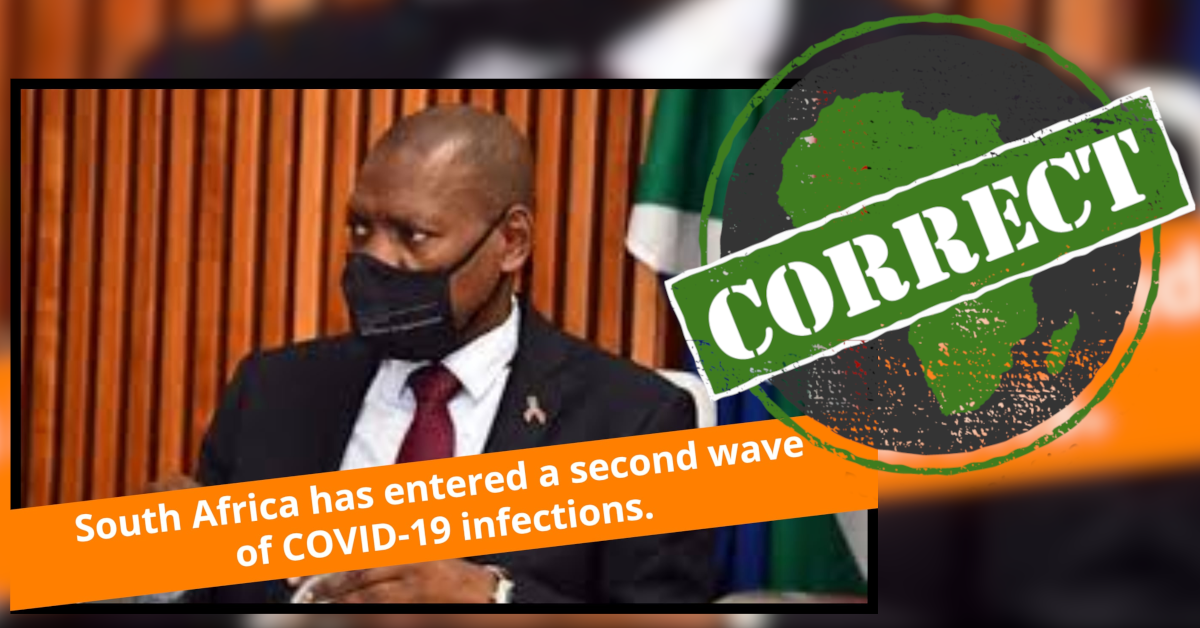A post circulating on Facebook in December 2020 claims that “South Africa has entered a second wave of Covid-19 infections”.
Facebook marked the post as possibly false, but it’s true. 
In a speech on the evening of 9 December, South Africa’s minister of health, Zweli Mkhize, confirmed that the country had officially entered a second wave, according to criteria formulated by scientists and modeling teams.
Four provinces in South Africa – the Western Cape, the Eastern Cape, KwaZulu Natal and Gauteng – were driving the new wave, he said.
The country recorded over 6,000 new Covid-19 cases on 9 December, bringing the total number of cases to 828,598. Just over 50,000 of those were active cases.
As South Africa approaches the festive season, Mkhize urged people to continue practicing “non-pharmaceutical interventions” such as social distancing and the wearing of face masks.
Republish our content for free
For publishers: what to do if your post is rated false
A fact-checker has rated your Facebook or Instagram post as “false”, “altered”, “partly false” or “missing context”. This could have serious consequences. What do you do?
Click on our guide for the steps you should follow.
Publishers guideAfrica Check teams up with Facebook
Africa Check is a partner in Meta's third-party fact-checking programme to help stop the spread of false information on social media.
The content we rate as “false” will be downgraded on Facebook and Instagram. This means fewer people will see it.
You can also help identify false information on Facebook. This guide explains how.



Add new comment